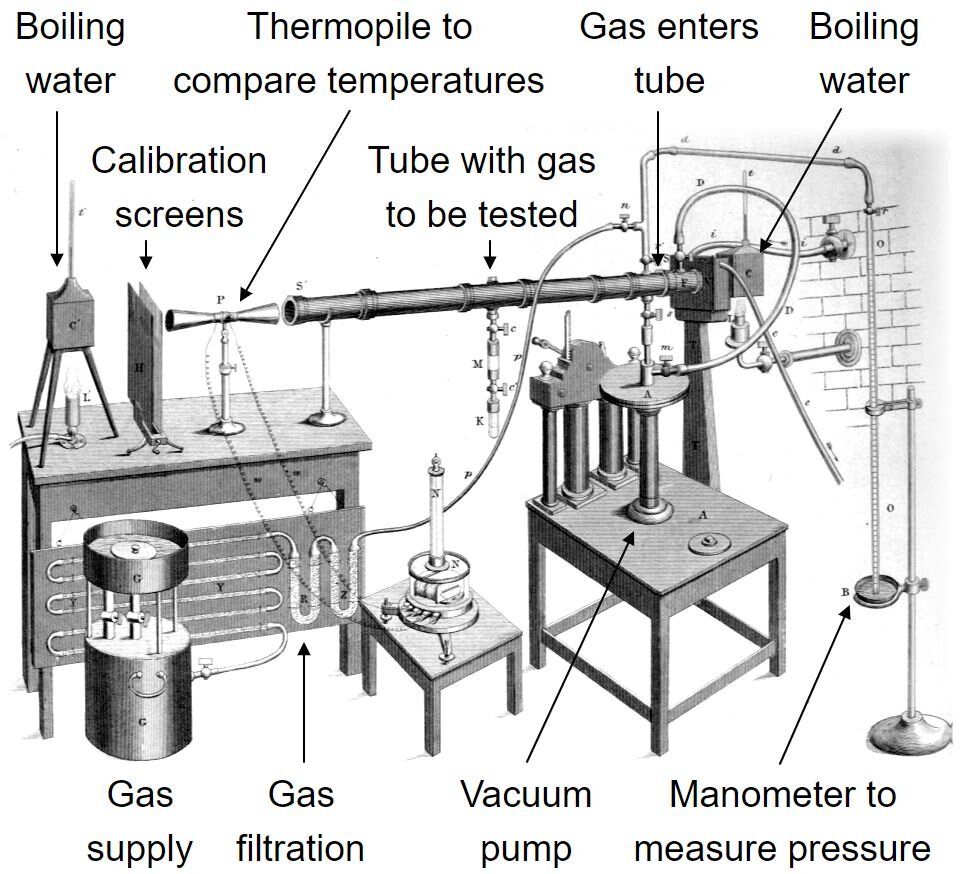Advisory & Writing
Net-Zero Consulting Services LTD offers advisory services including net-zero strategy, climate governance, and technical writing.
Corporates
-
Assess key decarbonization actions by quantifying the emissions impact, understanding the levelized cost, and creating a strategy aligned with Net-Zero ambitions using Science Based Targets (SBTi).
-
Establish a robust climate change framework across strategy, operations and finance. Including governance, risk-opportunity analysis, target setting, and reporting metrics using the Task-force on Climate-related Financial Disclosures recommendations (TCFD).
-
Support with climate-related content creation including policy, documentation, technical, and creative writing.
Financial Institutions
-
Create a strategy to align managed portfolios with science-based, net-zero ambitions using established target setting methodologies (PAII or SBTi).
-
Technical and policy documentation for Net-Zero portfolio target setting.
Support with research content covering net-zero technologies and companies.
Creative writing and web content.
-
Establish a robust internal climate framework and decarbonization pathway. Including governance, risk-opportunity analysis, target setting, and reporting metrics using the SBTi and Task-force on Climate-related Financial Disclosures recommendations (TCFD).
“Mathew is a pleasure to work and partner with. He is very knowledgeable in his field and his workshops provide a great way to get to the heart of what matters for investors wanting to understand the economic journey to net-zero.”
Preyesh Patel, Senior ESG Analyst, Franklin Templeton Investments
“Mathew supported our internal decision making through his analysis of a novel battery technology opportunity. His expertise in science and finance allowed for clarity, relevance and value-add in his technical and economic assessment.”
George Chalmers, Head of Climate-tech, Molten Ventures
“Mathew presented an excellent talk at our company about humanity's potential towards achieving a net-zero society, laying out a thoughtfully analyzed path for action that has hopefully inspired our research lab's efforts to develop the technology required for mitigating climate change.”
Ye Wang, Principal Research Scientist, Mitsubishi Electric Research Laboratories (MERL)
“Mathew takes complex concepts, turns them into easy to understand principles and most importantly, real world actions that give you hope.”
Mark Curtis, Partner at Larking Gowen Chartered Accountants and Business Advisors
"Mathew has contributed valuable insights on the subject of climate change and net zero, with a number of articles in The ESG Factor magazine and his appearance on The ESG Factor podcast."
Vincent McCarthy, Founder of ESG Ireland
The technologies which enable long-term energy storage - from heat, to pumping water to manufacturing hydrogen. How will long term storage work and what will it cost?
Why Lithium-ion batteries and pumped hydro are the leading candidates for short duration grid energy storage. And why renewables electricity generation plus storage will be cheaper than fossil fuel electricity in a Net-Zero future.
From short-term energy storage to seasonal energy storage - how do we balance supply and demand in a Net-Zero future. Pumped Hydro, Batteries, Compressed Air, Gravity, Demand Response, Hydrogen and e-Fuels: the technology ready to take on the energy storage challenge.
Tree Planting, Rock Weathering, Ocean Nutrition, Direct Air Capture, and Biomass with Carbon Capture - the pros and cons of sucking CO2 from the air. Why Negative Emissions Technology is useful for slowing Global Warming and offsetting hard-to-abate emissions, but will likely be limited to 10-30% of the solution.
Climate change will reduce the availability of fresh water due to rising heat, dry soils, more extreme downpours and flooding. Continue burning fossil fuels and we risk running dry this century. Switch to Net-Zero and the World can better manage natural resources.
How climate scientists use General Circulation Models to calculate future CO2-led temperature increases and amplifying feedback mechanisms. And why the next generation of Earth System Models may find further temperature amplifying effects and dangerous tipping points.
Fossil fuel combustion is responsible for more than 90% of all air pollutants. It generates invisible particulate matter which heightens the risk of respiratory disease and heart failure, leading to the premature deaths of 4-9 million people each year (15% of all deaths). Shift the global energy system to NET-ZERO and we can eliminate most air pollution issues.
The regions of the world most vulnerable to searing summer temperatures. The increasing frequency and intensity of extreme heat-related events in a warmer world. How deliberate human-induced forest burning is down, but wildfires are up. And why fewer winter deaths will be overwhelmed by increasing heat-deaths.
The countries and cities around the World most at risk from rising seas and more frequent and/or more intense extreme wet weather.
Mirrors in space, manipulating clouds, or painting the Earth white to slow or halt global warming. Why solar radiation management techniques appear a cheap and quick fix, but don’t offer a complete solution to climate change and run a seriously high risk of going badly wrong.
The Swedish chemist who first pieced together the maths of global warming, the British Engineer who first warned of climate change, and how even the earliest climate models have proven highly accurate.
Why CO2 is accumulating in the atmosphere and has already warmed the Earth by over 1⁰C and how we are emitting CO2 ten times faster than the fastest warming event in 60 million years of Earth’s history.
The major greenhouse gases and where they come from. Why different greenhouse gases have different warming impacts on the planet. How each greenhouse gas has contributed to warming so far and why CO2 is centre stage.
Over 100 years of climate science and predictions. Global frameworks for climate action and what they mean, how the Paris Accord and NDCs work, and why we are still heading for 3 degrees warming.
The carbon cycle, Milankovitch cycles, and human emissions - how planet Earth has gone from Icebox to Greenhouse.
Why carbon capture technology could prove useful in reaching net-zero but limitations on distribution, storage, and costs mean that it will likely be limited to less than 10% of emissions and should be reserved for hard-to-abate areas of the economy like cement, chemicals, and fertilisers.
From fossil fuels, to nuclear, to renewables - how do we choose the energy mix for a sustainable future with safe, reliable, low-cost, and zero-carbon energy?
Why the sun provides enough energy to power the economy 7,000 times over. And how burning coal, oil, and gas over the last 200 years has provided the surplus energy, knowledge, and innovation required to unleash the net-zero technologies for a sustainable future.
Net-Zero is about technology not geology. Learning curves describe the rate at which the cost of modular technologies decline with scale (not time) and point to wind and solar becoming by far the cheapest form of electricity generation once fully scaled.
The economics of shifting steel, cement, and chemicals to zero carbon. And how sustainable wood products & the fourth industrial revolution could help us reach net-zero.
The quantity of greenhouse gases released during the industrial production of the stuff we all consume. And why production (rather than consumption) estimates flatter developed countries’ carbon footprints.
Mitigating greenhouse gas emissions and why population controls are ineffective, curbing consumption is useful but culturally challenging, efficiency improvements are great but only slow change, and why net-zero technologies are needed for a complete solution.
For each person earning over $16,000 per year in the richest top 10% of the world there is someone stuck in the bottom 10% earning less than $1,000 per year. As everyone rightfully strives for a top 10% lifestyle emissions could double to over 100 billion tonnes per year and lock-in unknowable damage unless we rapidly transition to a net-zero system.
What does the 2008 financial crisis have in common with climate change risks? Underestimating fat-tails, sub-system collapse, and systemic breakdown - why the carbon crunch could be ten times worse than the credit crunch.
Understanding and attributing the impacts of climate change to support collective action and a least cost solution. The iterative prisoner’s dilemma and how the world is overcoming self-interest.
A brief history of shale gas, fracking, and the quest for ever greater quantities of cheap energy. Calculating the remaining resources of oil, gas, coal, and uranium. And the abundant materials available to build solar panels and wind turbines for a sustainable energy future.
The richest 10% of countries emit 30% of CO2 and take home 50% of global income today. They are also responsible for over 50% of all past emissions and hold 80% of the world’s accumulated wealth. Climate Justice is about how we balance the responsibility for past, present, and future emissions whilst driving a rapid transition to net-zero.
Why the total lifecycle greenhouse gas emissions of wind, solar, hydro, nuclear, and geothermal are at least ten times lower than fossil fuels. How natural gas emissions can be just as bad as coal. And why biofuels are not as low-carbon as you might assume.
Externalities, hyperbolic discounting, lack of information, status quo bias, lock-in, and the renter-tenant dilemma. Just some of the market failures slowing progress towards net-zero.
Comparing the power density of fossil fuel, nuclear, and renewable energy generation. Why wind and solar could power the planet using just 1% of Earth’s dryland.
































